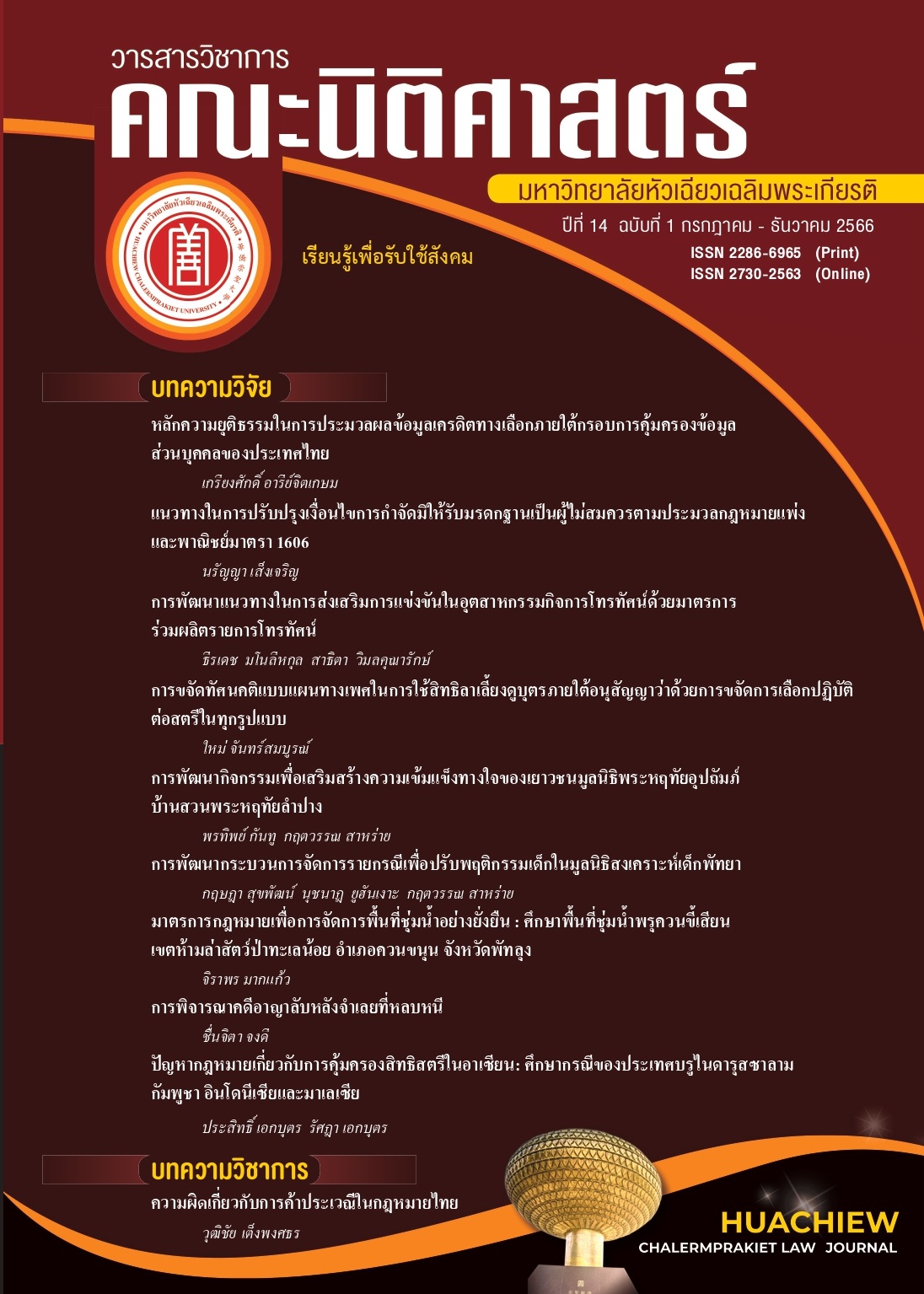The trial in absentia in case of the excused escape
Keywords:
The trial in absentia in case of the excused escapeAbstract
Criminal justice is aimed at preventing crimes that affect the peace of society. To protect victims for fair treatment and to protect the rights of the accused in criminal cases, it must be assumed that the accused is not guilty before the final verdict. The trial and examination of witnesses in court must be conducted openly in front of the defendant. The basic human rights principle stipulates that all persons should receive equal and fair treatment. Not discriminated against. Equal protection of the law. Trial based on the principle of "listening to all parties" which International Covenant on Civil and Political Rights Section 14 (1) requires that individuals be equal in the court and the judiciary in criminal trials, which they must find guilty or trials concerning their rights and duties. All persons shall have the right to be considered openly and fairly; (3) (d) the right to be considered face-to-face by the .Measurement of Thai Criminal Code. 46 stipulated that the claim for compensation in civil cases must wait for the criminal case to reach its final judgment. The provisions of the law are civil and criminal. Therefore, the principle of behind-the-scenes trial is applied to benefit the plaintiff if the defendant escapes under Article 172/1, Article 172/2, Article 180, and Article 237 of the Code of Criminal Procedure. Criminal proceedings The court can proceed with the hearing and examination of witnesses behind the defendants' backs, the civil court. Therefore, the plaintiff could consider damages even if the defendant fled to confiscate the remaining assets to compensate the plaintiff. This was a fair trial for the plaintiff, but it affected the defendant's right to have no evil mind, intention to escape, such as moving, so he could not be subpoenaed. The defendant did not come to court on the date of the court's hearing to assume that all defendants had fled. Therefore, the right to return should be granted. Appear later to proceed with the retrial in accordance with human rights principles to maintain a balance between the benefits of both parties and the provisional release sentence. When the defendant has escaped, the case cannot be prosecuted. Therefore, the law should be revised once eaten that the life of the stumbling block is stopped.
References
คณิต ณ นคร, กฎหมายวิธีพิจารณาความอาญา (กรุงเทพมหานคร: สำนักพิมพ์วิญญูชน, 2549).
มานิต จุมปา, ความรู้เบื้องต้นเกี่ยวกับรัฐธรรมนูญแห่งราชอาณาจักรไทย (พ.ศ.2540) (กรุงเทพมหานคร: สำนักพิมพ์นิติธรรม, 2545).
มธุริน พงศกรพาณิช อภิชัย วิลาวรรณ, “นิติธรรมสำหรับผู้สอนวิชากฎหมายในสถาบันการศึกษา” (2560) 13:2 วารสารวิชาการคณะนิติศาสตร์ มหาวิทยาลัยหัวเฉียวเฉลิมพระเกียรติ.
Christener E.smith, Criminal procedure (New York: THOMSON WADSWORTH, 2003).
Downloads
Published
How to Cite
Issue
Section
License
Copyright (c) 2023 Huachiew Chalermprakiet Law Journal

This work is licensed under a Creative Commons Attribution-NonCommercial-NoDerivatives 4.0 International License.
บทความหรือข้อความคิดเห็นใด ๆ ที่ปรากฏในวารสารฉบับนี้เป็นวรรณกรรมของผู้เขียนโดยเฉพาะ คณะนิติศาสตร์มหาวิทยาลัยหัวเฉียวเฉลิมพระเกียรติ และกองบรรณาธิการไม่มีส่วนรับผิดชอบหรือไม่จำเป็นต้องเห็นด้วยกับข้อคิดเห็นนั้น แต่ประการใด








